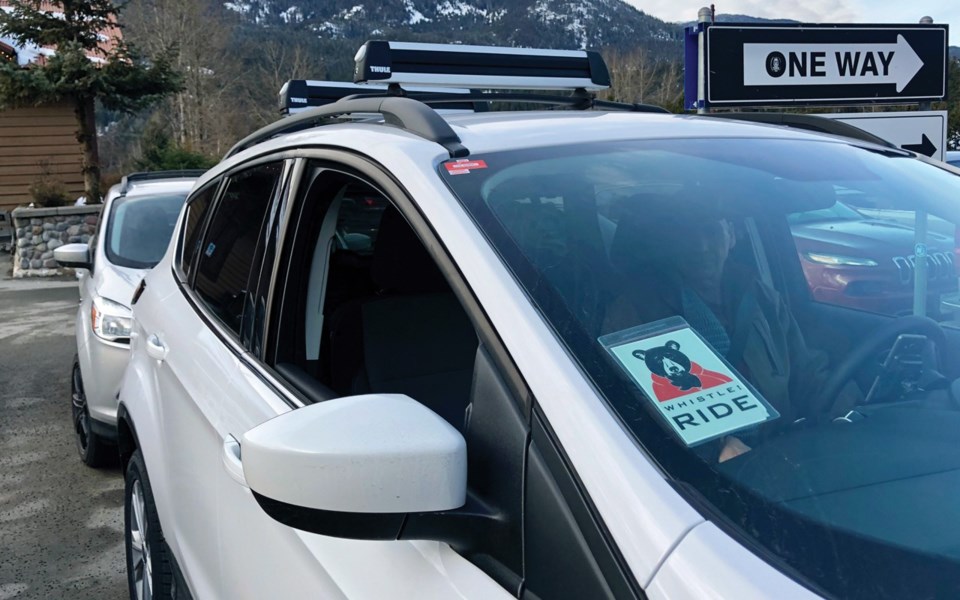ride-hailing companies throughout the Sea to Sky and Lower Mainland will soon be able to operate in multiple jurisdictions under a single business licence.
At its May 26 meeting, Whistler council gave first three readings to a set of bylaws that will streamline the licensing process for ride-hailing companies, allowing them to operate in multiple B.C. municipalities.
The bylaws are part of an Inter-Municipal Business Licence (IMBL) agreement with 24 other municipalities in the Sea to Sky, Lower Mainland and beyond, and will allow a central licensing authority (in this case the City of Vancouver) to issue licenses to ride-hailing companies, which can then operate in any participating communities.
While only two ride-hailing companies—Whistle and Lyft—have been issued Whistler business licences to date, should the IMBL be approved, all nine ride-hailing companies currently approved for the region would be able to apply for a licence.
The proposed annual IMBL fee is $155 per company plus vehicle fees of $150 per standard vehicle, $30 per zero-emission vehicle and $0 per wheelchair-accessible vehicle. Revenue would be shared amongst participating municipalities.
For Whistle, the new bylaws—and their new per-vehicle fees—just mean more costs, said founder Dylan Green.
"We really rely on part-time drivers that just want to add a second income, and so this will make it more difficult just to have a fleet of part-time drivers that can really just jump in during peak times," Green said, adding that Whistle will probably cover the new fees for drivers to begin with.
"Having a per-vehicle fee will just mean more expenses and perhaps make it less likely for someone to join the team."
One upside of the new licencing structure is that Whistle drivers will now be permitted to take passengers to YVR and pick up return fares to bring back to the resort.
"I guess that's a pretty good positive," Green said.
"Like everything when you're in a brand-new industry, everything is changing so quickly with ridesharing in B.C., so you just have to look at every hurdle and see how you can make it work for your company."
Whistle's goal is to have 20 to 30 drivers operating in Whistler (though with the impacts of COVID-19, that number is currently closer to four, Green said), and 10 to 15 in Tofino.
While the company also serves Pemberton, Squamish and Ucluelet, there are no immediate plans to branch out with the new bylaws.
"We want to be really strong in Whistler and Tofino first," Green said.
At the May 26 council meeting, Councillor Arthur De Jong voted against the bylaws, arguing more could be done to mandate that ride-hailing companies use electric vehicles.
"I recognize there's infrastructure costs; I'm a free enterpriser," De Jong said.
"[But] we collectively as a society need to push our GHG emissions down by 30-plus per cent in a decade, so I find this hard to support when I see that it could be used as more of a lever for more EVs on the road today."
The public is invited to comment on the proposed bylaws by writing to mayor and council before June 19.




